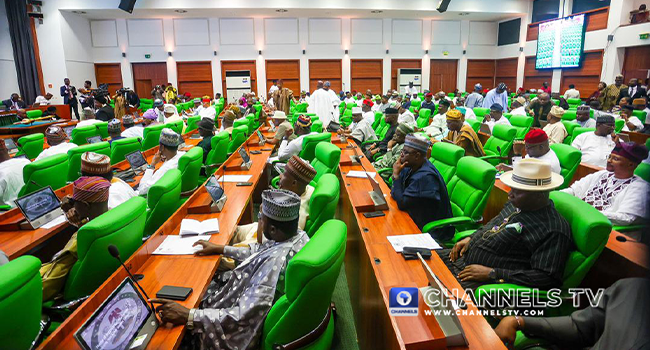386
By racy Moses
The Speaker of the House of Representatives, Rt. Hon. Abbas Tajudeen, PhD, has affirmed that the legislature fully supports President Bola Tinubu’s borrowing policy, describing it as an essential mechanism for advancing infrastructure and accelerating national growth.
Abbas gave the assurance in Abuja on Monday while delivering the keynote address at the 8th Annual African Network of Parliamentary Budget Offices (AN-PBO) Conference, organised by the National Assembly in collaboration with the National Assembly Budget and Research Office (NABRO). The conference was themed “The Role of PBOs in African Parliaments’ Fiscal Oversight: Contribution to the African 2063 Development Agenda.”
His comments followed recent reports implying that lawmakers were against the administration’s debt plans. The misunderstanding arose after remarks delivered on his behalf by House Leader, Prof. Julius Ihonvbere, at the 11th Annual Conference of the West Africa Association of Public Accounts Committees (WAAPAC), where concerns were expressed over Nigeria’s rising debt stock, which has hit 52 per cent of GDP, surpassing the statutory ceiling of 40 per cent.
Addressing the issue, Abbas said his position had been taken out of context. He stressed that the House is not opposed to borrowing but is focused on ensuring that every loan is transparently acquired, prudently managed, and applied to projects that will grow the country’s productive base.
“A speech delivered by the House Leader at the West Africa Parliamentary Conference was mischievously reported out of context, creating the wrong impression that the House of Representatives rejects President Tinubu’s borrowing plan. Such an interpretation is inaccurate and misleading,” he explained.
The Speaker maintained that borrowing, when carefully handled, is a globally recognised fiscal tool to fund critical infrastructure, energise the economy, and safeguard vulnerable citizens. He further stated that President Tinubu had given assurances that future loans would conform to Nigeria’s medium-term debt framework and international benchmarks. He added that current borrowings are already being directed at key sectors such as power, transportation, and agriculture, which are expected to expand revenue and tackle poverty.
“The House is solidly behind the President’s vision of deploying judicious borrowing as a catalyst for development and poverty alleviation, while we strengthen parliamentary oversight,” Abbas emphasised.
On Africa’s broader economic realities, Abbas expressed concern that Nigeria alone loses about $18 billion annually to financial crimes, representing nearly 3.8 per cent of its GDP. He said the losses across Africa are estimated at $587 billion every year, driven by corruption, illicit financial flows, and systemic inefficiencies.
He cautioned that such leakages are crippling Africa’s ability to provide quality social services, adding that if the resources were properly harnessed, they could transform education, healthcare, and other vital sectors.
Highlighting Nigeria’s pivotal role, Abbas observed that Africa, with 1.4 billion people, around one-sixth of the global population, is at a defining moment. With a GDP of $477 billion in 2022 and over 200 million citizens, Nigeria, he noted, must assume a leadership role in shaping the continent’s trajectory. Yet, widespread poverty persists, with 464 million Africans in extreme deprivation, while high youth unemployment threatens social stability. Each year, 12 million young Africans join the workforce, but only 3 million jobs are created, leaving a troubling gap that could yield either a demographic advantage or crisis.
In a goodwill message, the Chairperson of AN-PBO, Professor Dumisani Jantjies, commended Nigeria for pushing ahead with key macroeconomic reforms, which saw the economy post 3.4 per cent growth in 2024, the best in a decade. However, he warned that inflationary pressures and widespread poverty remain daunting hurdles.
Jantjies also pointed out that African economies remain highly vulnerable to global disruptions, from volatile capital flows to climate change. He underlined the importance of Parliamentary Budget Offices in safeguarding fiscal discipline and providing legislators with objective, evidence-based analysis to strengthen governance.
“Parliamentary Budget Offices have become indispensable to promoting transparency, accountability, and aligning public resources with Africa’s long-term development aspirations,” he said.
The conference attracted lawmakers, economic experts, and policy analysts from across the continent to explore how parliaments can play a stronger role in advancing the African Union’s Agenda 2063, the roadmap for “the Africa we want.”



